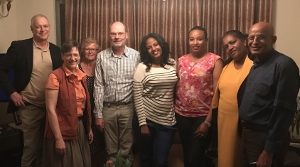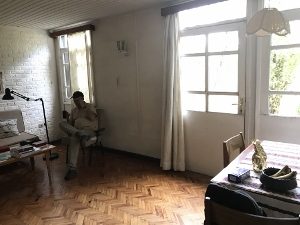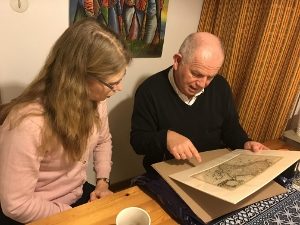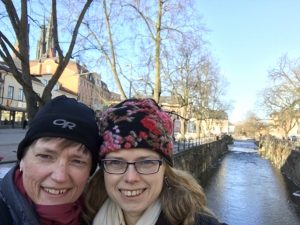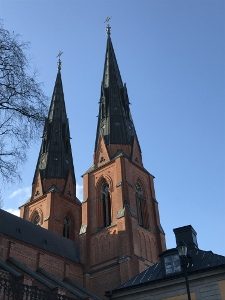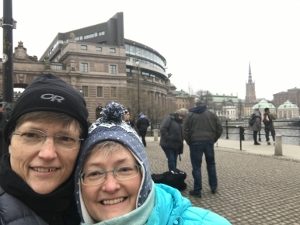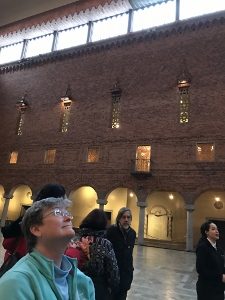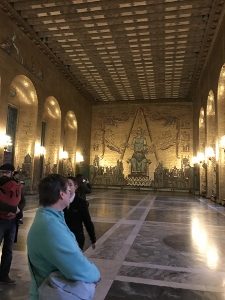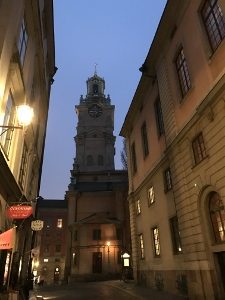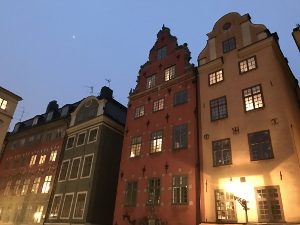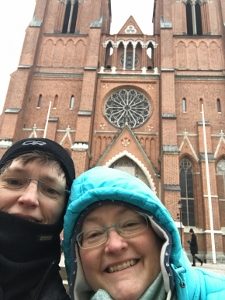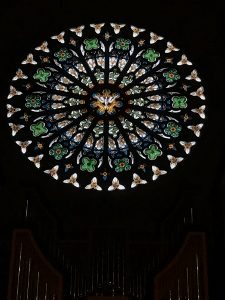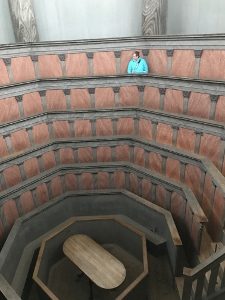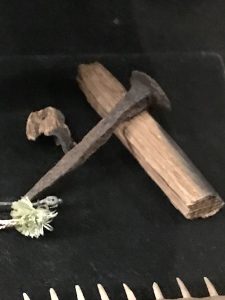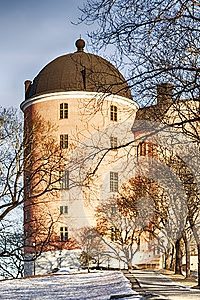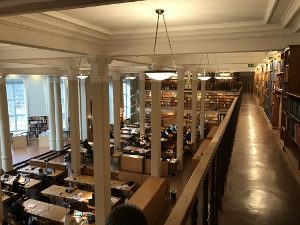This is only my second day, but it feels like I’ve been here twice as long because of all the meaningful connections.
I slept quite fine in a simple guest room. There is no central heating, and we are at over 8,000 feet high, so it gets cold at night, about 48 degrees. However, my room is on the top level of a split level house, so the heat goes up. It was warm when I went to sleep, but I knew it could get very cold. I kept layers handy. I also sleep with an eye mask as the sun would rise before I hoped to. For a first night in a rustic place, it went quite nicely.
There is a hot water heater here, so I do get a warm shower! I don’t do cold showers any more. I’ll put the effort into boiling water and taking a bucket bath instead if needed. No need.
Across the hall is Staffan, my colleague at Johannelund and host here. He and his family came in 1983 during the Marxist regime, that was rather short lived. I’m learning more of his story and glad to have his experience and fluency in the Amharic language for my introduction here.
We visited Mekane Yesus seminary, a bachelor’s program, which the Swedish Evangelical Mission helped to start.
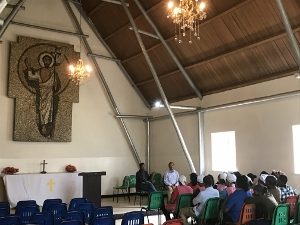
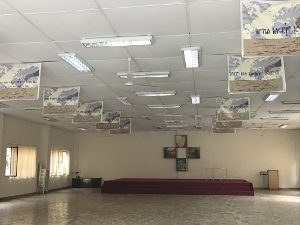
The new principal is very gifted and articulate, however, he has inherited great challenges. The main one is that the government will pay for students who qualify to go to university tuition free. However, there is no funding available for this program. So, why pay to go to a program if you can get a bachelor’s degree at no cost!?! Those who academically don’t qualify but have some funds then pursue theological studies. What a challenge! They are really hoping for scholarships to be able to attract good students in order to raise the academic standards.
The other complication is that the relationship between Mekane Yesus and the ELCA is severed. So, the LCMS is stepping up big time. However, they will only provide scholarships for men. The Mekane Yesus leadership is eager to balance this. So if your home church can fund a scholarship for a woman in pastoral training, please let me know. I will get you in contact with the leadership.
Let me also impress upon you how important leadership training is. Mekane Yesus is the largest Lutheran church in the World with 7.9 million members and growing fast (24% increase since 2013!!!). They need leadership. The church is vibrant, but without enough leadership, it will be too easy to be influenced by the Nigeran itinerant preachers pushing a prosperity gospel. I am told that some even fly in on their private jets!
I met some Swedish, African, and American missionaries. The Swedes and African missionaries are involved in outreach that is sensitive in nature, so I won’t be able to talk about some amazing things going on.
Then it was over to EGST, the Ethiopian Graduate School of Theology. This is where Staffan is teaching this month. He gave me a tour of this rather new 7-story building, with part of it opening in about 2013. It is rather nice, though there is no water in the taps. This is Africa.
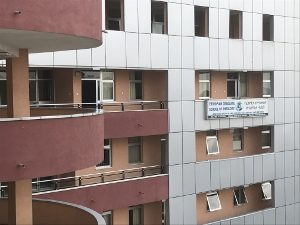
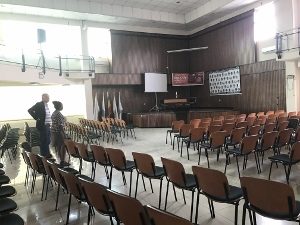
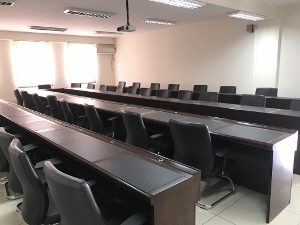

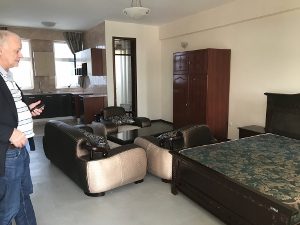
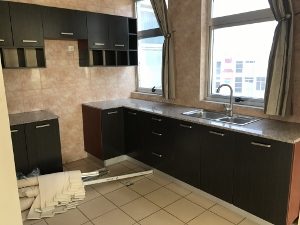
We had injira for lunch, eating the Ethiopian way, with the cutlery God gave us, our hands. It is good, with different sauces to try.
The afternoon was checking email and preparing for tomorrow’s guest lecture that I will give.
Unfortunately, my AirBnB host has emailed to say she is cancelling our reservation in London for 21-24 February just 2 days after confirming it! However, she hasn’t submitted the cancellation on AirBnB, and told ME to do it. But I need her to do it to get a refund. UGH.
Then, I don’t have secure WIFI here, so I sent all the details to my sister to ask her to make a reservation for me with a credit card. It is crazy to have to deal with this cancellation after only 2 days since the host’s confirmation and be so far removed from the capability to remedy this. (And as I write this email, the power is out, so I’m at my desk with candlelight.)
After checking some internet news (npr.org), weather for Addis (I knew the rain and lightning was coming, but I didn’t know it would knock out the power), and finding a hotel in London close to 2 of Anya’s potential universities, Staffan and I headed out. I was able to get some Ethiopian cash at the second ATM, which actually was better anyway. I could use my MasterCard with a 0% international exchange rate instead of the 3% Visa.
We had a simple dinner of yoghurt with fresh strawberries, fruit, egg sandwiches, and mangos for dessert. We sat outside without a bug in sight and talked until the sun went down at about 6:30. Then, more prep for the lectures tomorrow.
I will be in a Pentateuch course in the morning giving an overview of my PhD research on generational curses. There was a bit of confusion, because originally, I was invited to share my research on Wednesday evening for a gospel and culture course. I will have some repeat of the generational curse content, but I will have a bit of a different focus. However, I will check tomorrow morning to see if any of the Pentateuch students will be in the evening session on Wednesday. I will see if I won’t have to adjust from my original plans too much.
The rain in pouring down. We aren’t too far from a river, but at least I’m on the second floor!
With blessings,
Beth
